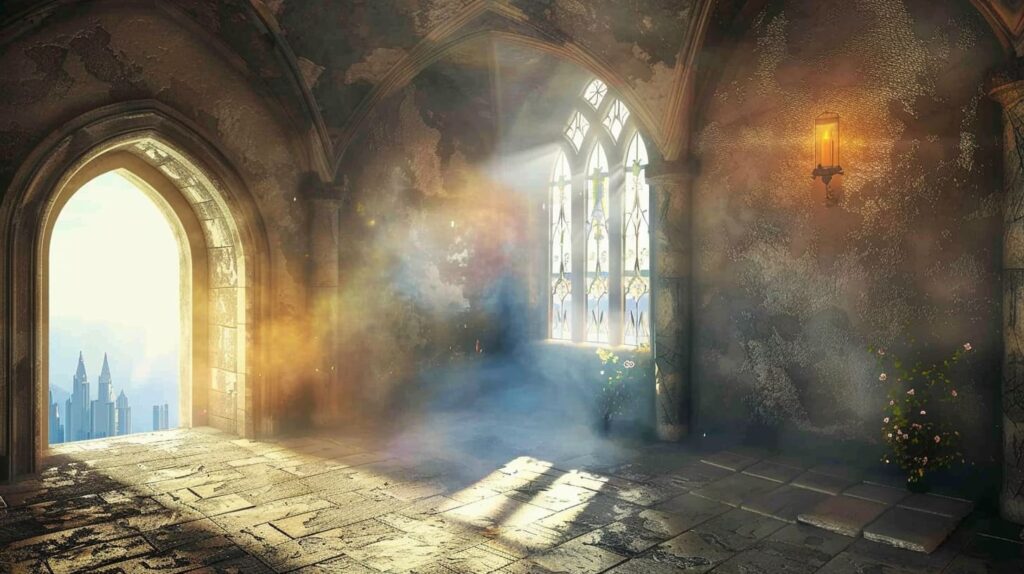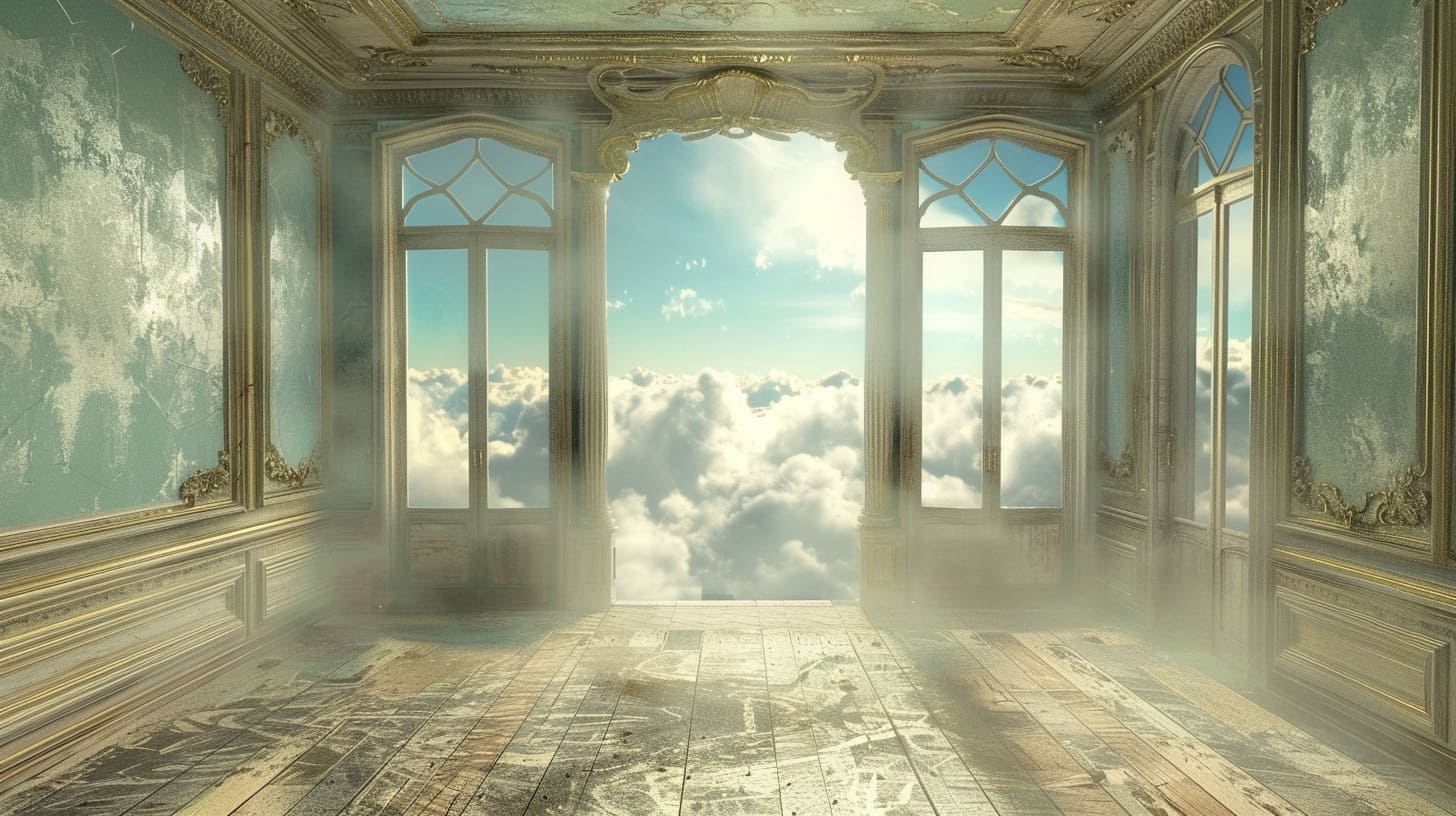Dream analysis opens a captivating window into the subconscious, offering a unique look at the deeper layers of our minds. Through understanding dreams, we can tap into profound spiritual insights. Specific to this discussion is the intriguing concept of an upper room in dreams. What does this elevated space mean? Often, it serves as a symbol of isolation, protection, or divine revelation, presenting the dreamer with opportunities to reflect and receive higher wisdom or guidance. Let’s explore what insights the upper room might hold.
Common Themes in Upper Room Dreams
Dreaming of an upper room often incorporates themes of isolation, protection, or revelation. These elements reflect a journey within oneself, typically hinting at the dreamer's need to disconnect and introspect. Such dreams might suggest a sanctuary where individuals find peace away from life’s turmoil or a hidden chamber where truths are unveiled.
- Isolation in upper room dreams can symbolize a period of self-reflection or solitude needed to face personal truths or make important decisions.
- Protection is a theme where the dreamer feels safe from external influences, indicating a need to preserve one's mental space and peace.
- Revelation is a powerful theme, pointing to personal discoveries and insights that are revealed in a higher, secluded place.
By interpreting these themes, dreamers can connect deeply with their inner wisdom and utilize these insights to guide their spiritual journey or resolve real-life challenges.
Symbols Related to the Upper Room
Symbols often manifest vividly in upper room dreams, each offering significant insights into the dreamer's subconscious and spiritual path. Common symbols include stairs, doors, and windows, each holding profound spiritual implications across various cultures.
Stairs:
- Ascending stairs might signify progress or a spiritual ascent.
- Descending could suggest revisiting past issues or grounding oneself spiritually.
Doors:
- Open doors often symbolize new opportunities and paths in spiritual practices.
- Closed doors might indicate unexplored areas of life or barriers in personal growth.
Windows:
- Windows serve as portals for new visions and perspectives.
- They can also represent openness to spiritual energies and influences.
These symbols encourage dreamers to explore their spirituality and personal growth, connecting them to the sacred aspects of their journeys.
Historical Significance of the Upper Room

Upper rooms have played pivotal roles in various societies, especially in ancient architectures where they were used for religious ceremonies or important gatherings. Here’s how upper rooms translate into deeper symbolic meanings:
- In many cultures, upper rooms are positioned as sacred spaces, reserved for high priests or spiritual leaders, symbolizing a link to the divine.
- They often served as meeting places for critical decisions or spiritual revelations, highlighting their significance in guiding societal or communal spiritual paths.
Recognizing these historical contexts enriches the interpretation of upper room dreams, providing a broader understanding of their importance in both personal and collective subconscious.
The Upper Room in Religious Texts
References to upper rooms in sacred texts enrich our understanding and provide a foundational context. For instance:
- The Bible: The story of Pentecost and the Last Supper, which took place in an upper room, illuminating its role as a space for profound spiritual transitions and revelations.
- Other Scripts: Various religious writings from different traditions also emphasize the significance of upper rooms as places of divine intervention and spiritual communion.
Analyzing these texts allows us to draw parallels and deepen our insight into why upper rooms appear in dreams, linking past narratives to personal, present-day spiritual explorations.
The Upper Room and the Subconscious
The concept of the upper room resonates deeply within psychological frameworks, often representing aspects of the inner self or the higher conscious. It serves as a secluded space where one's deeper thoughts and unresolved conflicts emerge out into the open. How does this manifest in dreams?
- Inner Conflicts: The isolation of the upper room can symbolize the inner battles or conflicts needing resolution.
- Intuition and Higher Wisdom: Such dreams may also point to an awakening of intuitive powers or a call to listen more closely to one's inner voice.
This connection between psychological theories and dream symbolism helps individuals decipher the messages their subconscious might be trying to communicate, offering a bridge between the mystical and the material.
Emotional Context of Upper Room Dreams
Understanding the emotional undertones of an upper room dream can be enlightening. Whether those feelings are of fear, peace, or anticipation, they provide essential clues to the individual's current life situations or emotional states. Here’s what these emotions might suggest:
- Fear: Might indicate unresolved issues or anxiety about confronting unknown aspects of oneself.
- Peace: Could suggest that the dreamer has found or is in search of mental clarity and spiritual tranquility.
- Anticipation: Often signals an impending revelation or significant change in the dreamer’s spiritual journey.
Connecting these emotions to everyday life can help individuals better manage their feelings and responses to various life events.
Reflecting on Personal Experiences
Lastly, considering one's life experiences and personal symbols when analyzing upper room dreams can offer tailored and profound insights. This personalized reflection involves:
- Documenting dreams in a dream diary to track themes or recurring symbols.
- Relating the dream's context to current life circumstances or decisions.
- Consulting dream interpretation experts or using psychological and spiritual resources to uncover deeper meanings.
By actively engaging with their dream experiences, individuals can gain meaningful perspectives that are uniquely relevant to their lives, aiding in their spiritual growth and personal self-awareness. Let’s encourage each other to delve into these dream landscapes and reclaim the wisdom they hold. What does your upper room look like in your dreams? What mysteries might it be revealing to you?
Dream Journals and Spiritual Development
Dream journals serve not just as repositories of nocturnal narratives but as keys to unlocking the deeper layers of our subconscious. Engaging regularly with a dream journal can significantly enhance your spiritual journey, revealing patterns and subconscious messages that might otherwise go unnoticed. This practice isn't just about recording what you dreamt—it's an invitation to reflect and grow spiritually.
Why Keep a Dream Journal?
- Personal Reflection: Documenting your dreams can help you observe recurring themes or symbols that are significant to your spiritual path.
- Subconscious Messages: Over time, you may begin to see clear messages or guidance emerging from the patterns in your dreams.
Incorporating this habit can be transformative, acting as a mirror reflecting your innermost thoughts and spiritual desires.
Christian Interpretation of the Upper Room
The Upper Room holds a place of great reverence in Christian theology, imbued with profound symbolism particularly related to key events like Pentecost and the Last Supper. Understanding these events can deepen our comprehension of upper room dreams within a Christian context, where they often symbolize a place of divine revelation and profound transformation.
Key Christian Events Associated with the Upper Room
- The Last Supper: This was not just a farewell meal; it was a moment of deep spiritual import, imbuing the upper room with a sense of sacred trust and fellowship.
- Pentecost: The descent of the Holy Spirit upon the apostles in the upper room marked a moment of significant spiritual empowerment and enlightenment.
Reflecting on these interpretations encourages us to view our own upper room dreams through a lens of spiritual communion and potential awakening.
Interpretations in Other Religions
The symbolism of the upper room varies yet often overlaps in different spiritual and religious traditions. Exploring these can offer a broader understanding of its universal yet diverse symbolic importance, enhancing our interpretations of these dreams.
Comparative Religious Symbolism
- Eastern Religions: In many Eastern traditions, upper spaces are often viewed as areas of isolation for meditation and spiritual ascension.
- Indigenous Cultures: For some indigenous peoples, high places are often considered closer to the spiritual realms, making upper rooms significant for spiritual communication.
Understanding these diverse viewpoints helps bridge cultural gaps in dream analysis, revealing a rich tapestry of spiritual symbolism across traditions.
Transforming Dream Insights into Action
While it's enriching to unravel the mysteries of upper room dreams, the real power lies in applying these insights into daily life. Here are a few actionable steps to consider:
Steps to Apply Dream Insights
- Meditation and Reflection: Use the insights from your dreams as focuses for meditation or reflection.
- Spiritual Exercises: Implement spiritual practices that resonate with the themes of your upper room dreams, perhaps exploring areas of personal growth or divine connection.
These practices can help transform dream insights into meaningful spiritual actions, imbuing your daily life with a deeper sense of purpose and self-awareness.
When to Seek Further Guidance
Sometimes, the messages within our dreams are cryptic or profoundly impactful, prompting us to seek out further expertise. Recognizing when you need additional guidance is crucial in fully understanding the complex tapestries of upper room dreams.
Signs You Might Need External Guidance
- Recurring Complex Dreams: If you find yourself repeatedly encountering upper rooms in your dreams, each layered with intricate symbolism.
- Overwhelming Emotions: Dreams that evoke strong emotional responses could benefit from professional interpretation to uncover deeper meanings and implications.
Seeking advice from dream interpretation experts or spiritual advisors can offer clarity, ensuring that the profound messages hidden in your dreams are accurately understood and appreciated.
Conclusion
The journey through the symbols of upper room dreams reveals a multifaceted landscape of personal discovery and spiritual reflection. Embracing the symbolism of the upper room can significantly enrich one's understanding of their subconscious and spiritual trajectory. As we document and reflect on these dreamscapes, we connect more deeply with our inner wisdom and pave the way for meaningful spiritual growth. Let’s continue to unravel these mysterious nocturnal messages and apply their wisdom in our quest for spiritual awakening. Isn't it time you explored what your dreams are trying to tell you?

What symbols have appeared in your dreams lately, and how do you think they relate to your spiritual journey? Share your experiences and join the conversation below. Let’s learn and discover together in this fascinating exploration of dream symbolism and spiritual self-awareness.







0 Comments